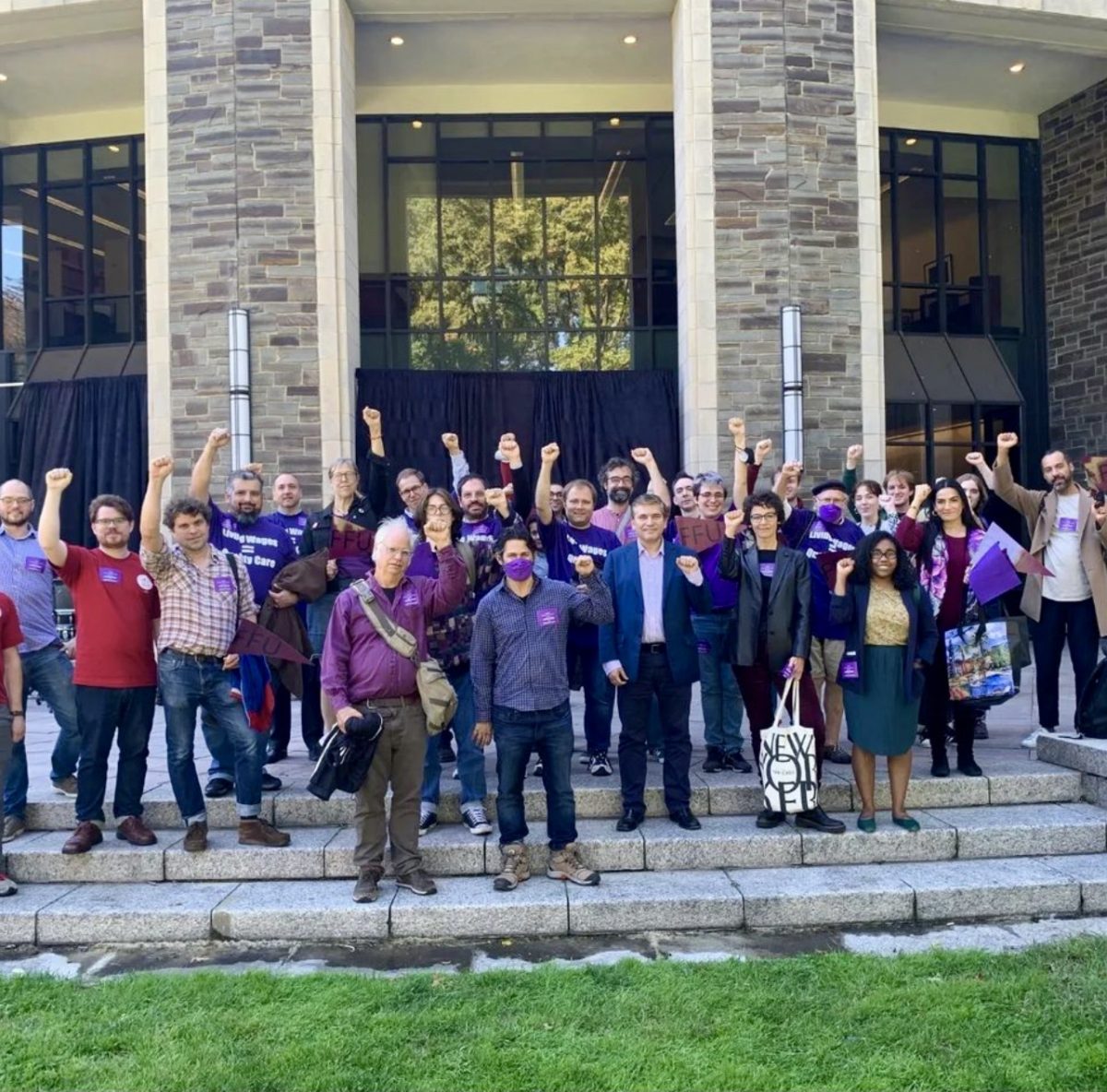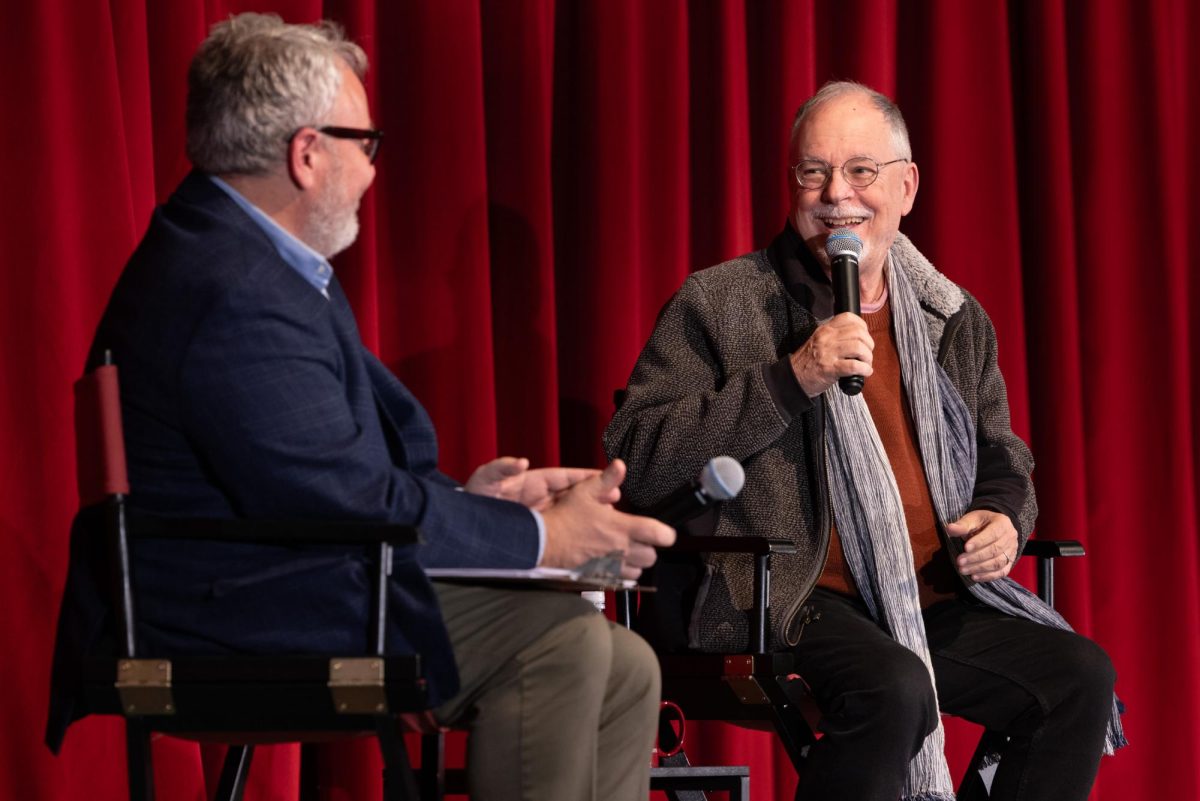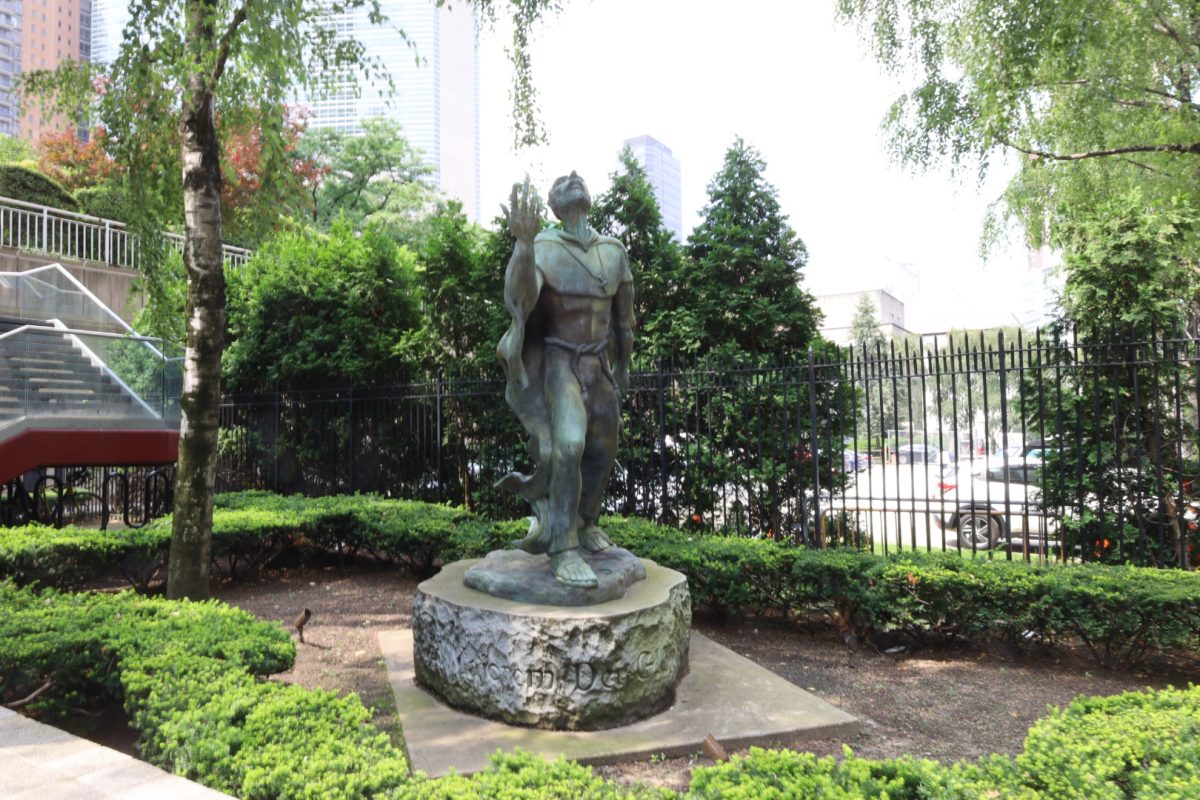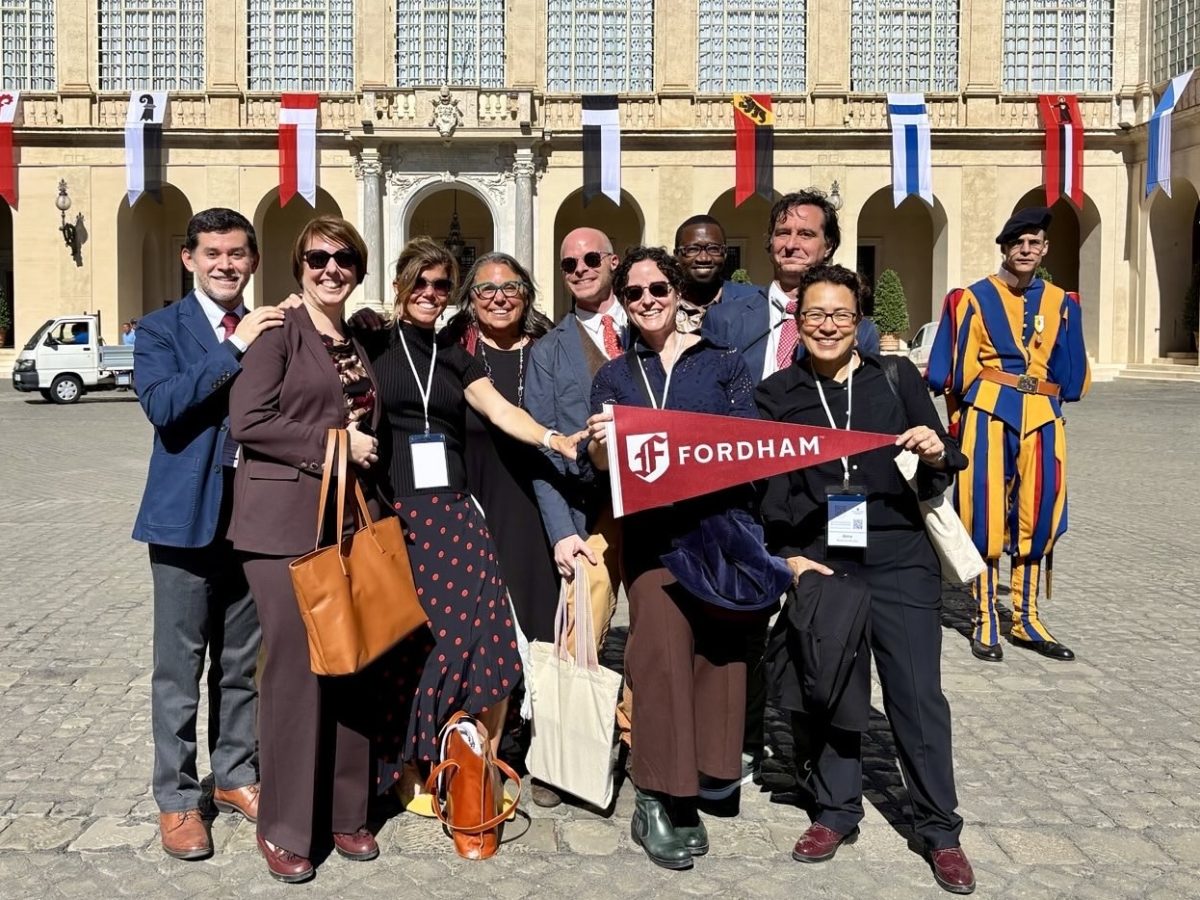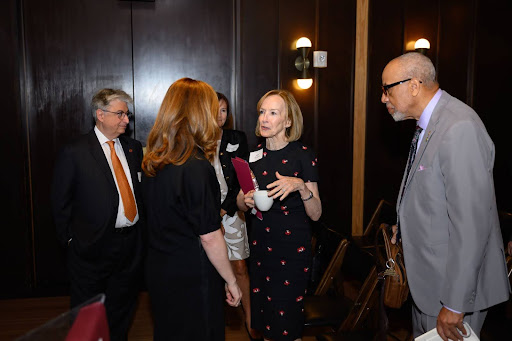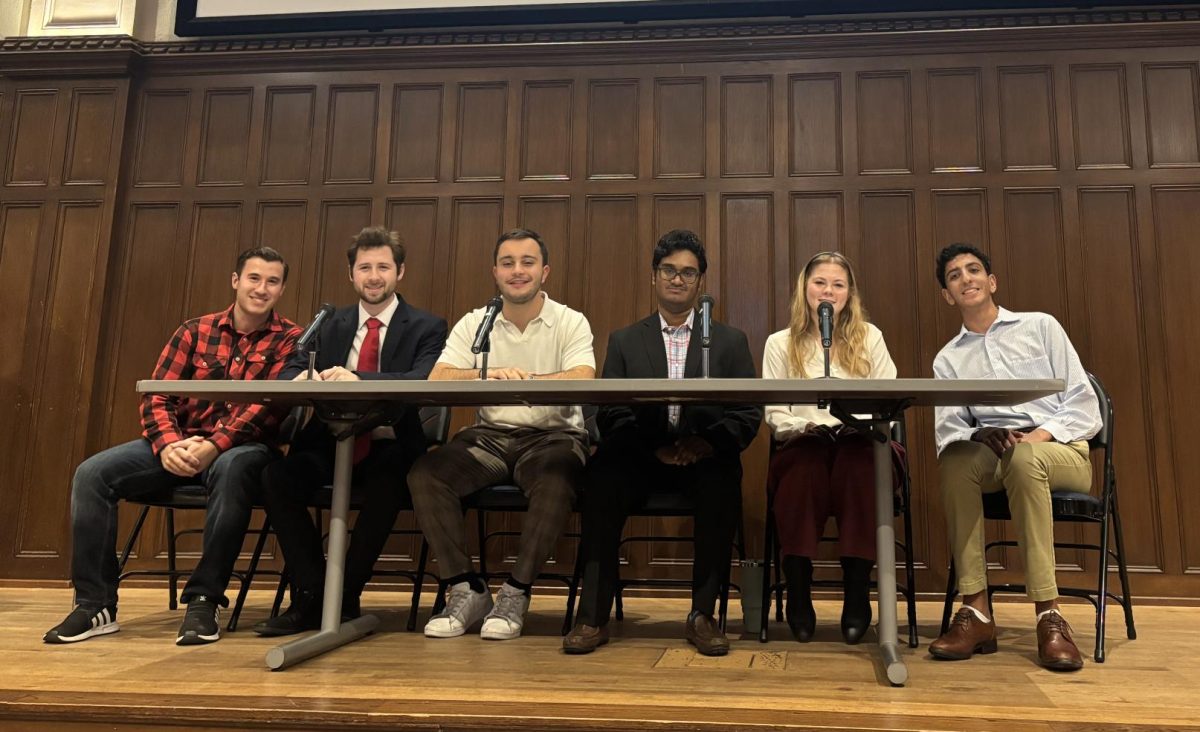At the beginning of the 2023 spring semester, Fordham Faculty United (FFU), the union representing over 600 contingent faculty at Fordham University, nearly went on strike ahead of the tenacious approval of their second collective bargaining agreement. The strike was scheduled to occur on Jan. 30 and would result in the disruption of over 1,500 classes, but was avoided after Fordham agreed to all of the terms of FFU’s proposal. One year since the near-strike, FFU continues to bargain and organize for adjunct faculty and lecturers in Fordham to secure salary increases, healthcare and adjustments in working conditions.
FFU was initially formed in 2016 despite substantial opposition from the university. Fordham eventually approved the union, which then went on to pass their first collective bargaining agreement (CBA) in six months — a considerably rapid timeframe. Their first CBA came with significant improvements for both adjunct faculty and lecturers.
Adjunct faculty and adjunct lecturers are contingent faculty who primarily teach (as opposed to conducting research) at Fordham and are not on tenure-track, which means that they are not guaranteed job security. Lecturers instead work on a contract basis that lasts a few years. Prior to the first CBA, lecturers had two titles, short and senior lecturers, with no pay differences.
The pattern is consistent through higher education. As Kari Evanson, FFU co-chair, notes, “I think this is a problem that’s endemic to higher education. In general right now, that’s the use of contract labor, whether that be adjunct or instructional lecturers [or] the undermining of tenure.”
Evanson explained, “With the first CBA, there’s now three different levels. There’s a lecturer that starts out with one-year contracts. And after that, they move into production of reemployment and job security, and then moving towards two year contracts. If you get promoted to advanced lecturer, that moves to a three-year contract, and senior lecturer after at least five years, you move to a five-year contract.”
Adjuncts, on the other hand, are hired on a course by course basis. They primarily teach with a two course maximum per semester — a restriction that prevents adjuncts from making a living wage. Diane George, FFU co-chair, explains, “One of the things we’ve been fighting with the administration about for six… seven years, is to lift the two course cap on adjuncts. So we are not allowed to teach more than two courses a semester. And that keeps us at a wage. So if you were making the top adjunct salary right now, you would be at about $35,000 a year, which is not livable in New York City.” Additionally, the restriction prevents them from being classified as full-time faculty who can qualify for health benefits, as full-time contingent faculty teach a maximum of three courses.
“They are deliberately suppressing the number of courses we can teach so that they don’t have to give us benefits,” said George.
Negotiations for the second collective bargaining agreement, whose contentious passage was the reason for the near-strike, began in January 2022. After the pandemic, new conversations were necessary about the workload and conditions of faculty. Adjuncts and lecturers wanted compensation and recognition for their online teaching during COVID-19 — especially in view of the fact that they had just agreed to a salary freeze.
“We had agreed to take a salary freeze during [COVID-19],” said George. “We had just worked like crazy to transform our classes from in-person to online classes, which was an immense amount of work… and we thought we should get, if not a significant raise, because of that, at least a bonus, some kind of financial recognition of it. And the response of one of the administrators was, ‘Well, we said thank you.’” In response to requests for healthcare, the administration offered $100 gift cards, which union members nicknamed the “Red Lobster gift cards.”
Evanson and George both characterized the administration as severely out of touch with the realities of teaching. Evanson recalled that the administration began suggesting one percent raises: “If you’re making $100,000, that is a raise, but if you are making $7,000, of course, 1% of that [is nothing].” Neither Joseph M. McShane, president emeritus, nor President Tania Tetlow directly reached out to FFU in the process of negotiations.
The union decided eventually to go on strike in early December of 2022 after a very strong majority vote. In the spring semester, rallies were held and the strike was announced to students and alumni. Suddenly, the night before the first rally, the administration reached out and agreed to their most recent proposal.
“I think they were panicked,” said George. “They realized we were gonna go through with it. And they actually contacted us and put, I guess that was when they put the FSA on the table. And then, the night before the first rally, they contacted us and said that they would accept our last proposal.”
Currently, FFU is planning on new negotiations in the spring of 2025 and are focusing on new initiatives such as recognition for senior lecturers with extensive experience and removal of the two course maximum for adjunct faculty. For students who are looking to stay involved, Evanson and George recommend staying informed with FFU accounts on Instagram (@fordhamfacultyunited) and X, formerly known as Twitter (@fordhamfacultyu).



































































































































































































